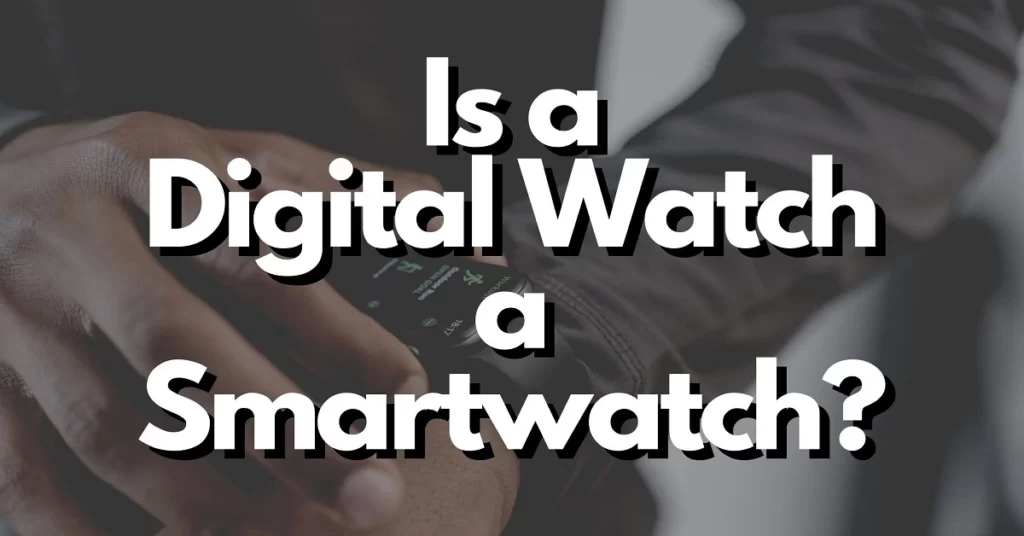Digital watches and smart watches are both types of electronic watches that display the time digitally, but they have some key differences and similarities. Here is a comparison of digital watches and smart watches:
Similarities:
- Digital display: Both digital watches and smart watches have a digital display that shows the time in digits. This makes it easy to read the time and eliminates the need to interpret the position of hands on a dial.
- Electronic movements: Both digital watches and smart watches use electronic movements, which are powered by a small battery. These movements are highly accurate and can keep time to within a few seconds per year.
- Additional features: Both digital watches and smart watches often have additional features, such as alarms, timers, and stopwatches, that allow the wearer to track elapsed time.
Differences:
- Connectivity: One of the key differences between digital watches and smart watches is connectivity. Smart watches are connected devices that can communicate with a smartphone or other device using Bluetooth or other wireless technology. This allows them to display notifications, run apps, and perform other functions that are not possible with a digital watch.
- Computing power: Smart watches have more computing power than digital watches, as they are equipped with processors, memory, and other components that allow them to run apps and perform other tasks. Digital watches, on the other hand, are primarily timekeeping devices and do not have the same level of computing power.
- Features: In addition to the timekeeping and additional features found on digital watches, smart watches often have a variety of other features, such as fitness tracking, voice assistants, and mobile payments. These features are not typically found on digital watches.
- Price: Smart watches are generally more expensive than digital watches, due to their advanced features and connectivity. Digital watches, on the other hand, are often more affordable and are suitable for those who are looking for a simple, reliable timekeeping device.
In conclusion, digital watches and smart watches are both types of electronic watches that display the time digitally. They have some similarities, such as digital displays, electronic movements, and additional features, but they also have some key differences.
Smart watches are connected devices with more computing power and a wider range of features, such as fitness tracking and mobile payments. They are generally more expensive than digital watches, which are primarily timekeeping devices with fewer features and lower price points.
Ultimately, whether a digital watch or a smart watch is the right choice for you will depend on your needs and preferences. If you are looking for a simple, reliable timekeeping device, a digital watch may be the better choice. If you want a more advanced device with a wider range of features and connectivity, a smart watch may be the better option.

